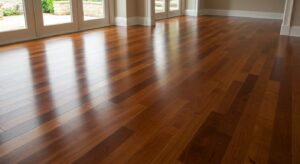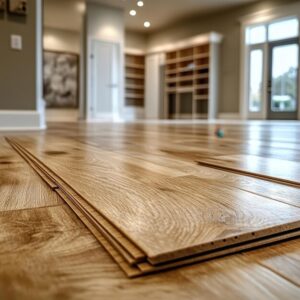You’re not alone if you’re torn between solid hardwood and engineered hardwood for your flooring. Balancing considerations like durability, cost, adaptability to climate, and resale value, this guide provides a side-by-side comparison to address solid hardwood vs engineered hardwood pros and cons. We bypass the fluff to give straightforward insights that help you choose which flooring is the best investment for your home. Let’s delve into the key differences that could sway your decision.
Key Takeaways
- Solid hardwood floors offer a timeless look and can be refinished multiple times, making them a long-lasting option, whereas engineered wood floors have a limited refinishing capacity and are better suited for moist or fluctuating climates.
- Engineered wood flooring is typically more affordable and offers greater resistance to moisture and temperature changes, with varied installation methods, including DIY-friendly options.
- Both solid and engineered wood floors can boost home resale value.
Decoding the Layers: Solid vs Engineered Wood Floors
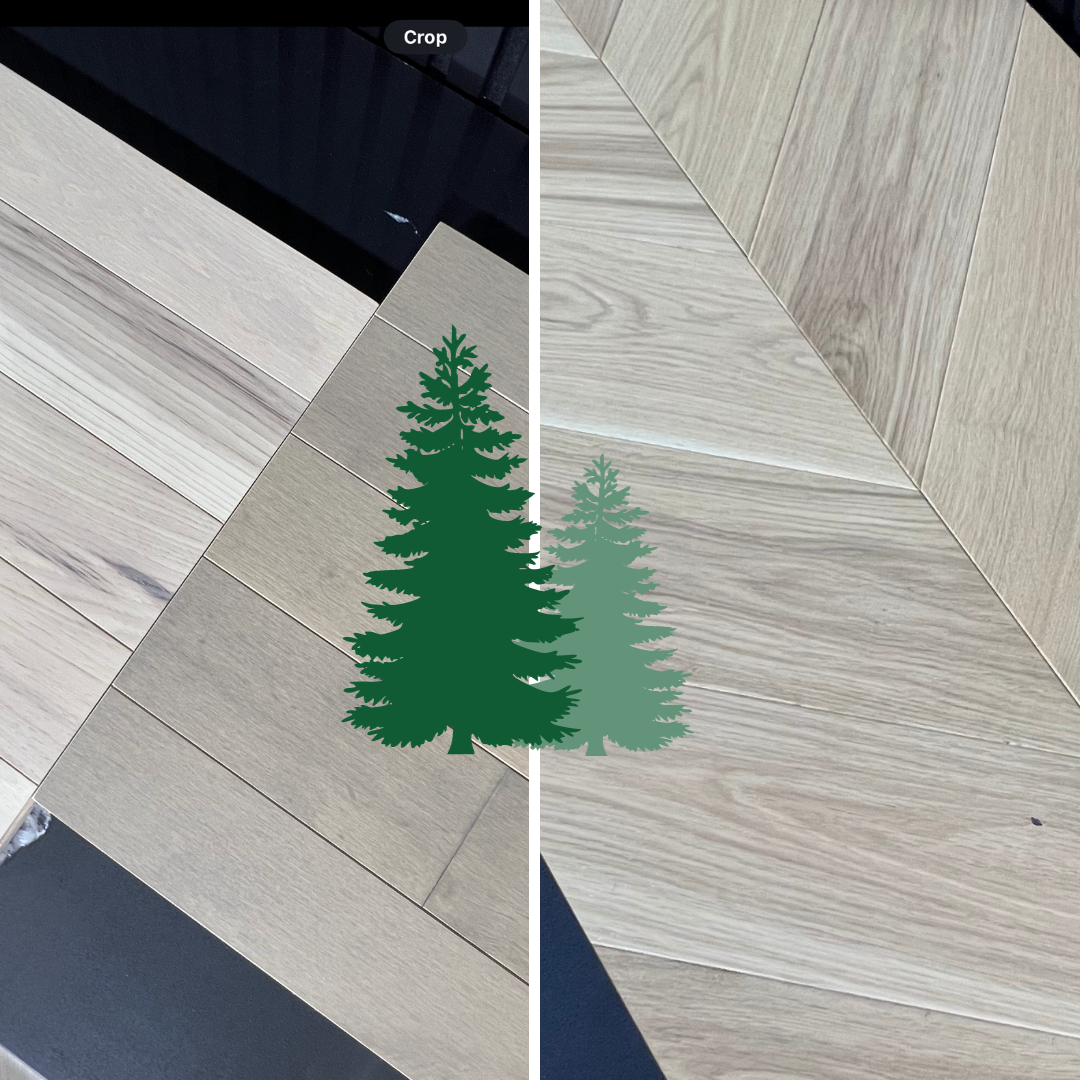
As the name implies, solid hardwood flooring is made entirely from planks of solid wood. It’s the traditional choice, adding a touch of luxury to any space. On the other hand, engineered wood flooring is a newer innovation, featuring a hardwood veneer over a core of layered plywood or oriented strand board (OSB). Engineered wood flooring’s unique composition provides benefits, including enhanced water resistance.
However, the engineered hardwood flooring construction also limits its refinishing potential. While solid hardwood can undergo numerous refinishing procedures, engineered wood flooring can generally only be refinished once to four times. Depending on the thickness of the veneer. Keep this in mind if you expect to refresh your floors often.
Despite the refinishing limitations, engineered wood flooring has its strengths. Notably, engineered wood flooring is more resistant to moisture and temperature fluctuations than solid hardwood. Therefore, it fits regions with varying climates or high humidity better.
Aesthetic Appeal: Comparing Looks and Styles
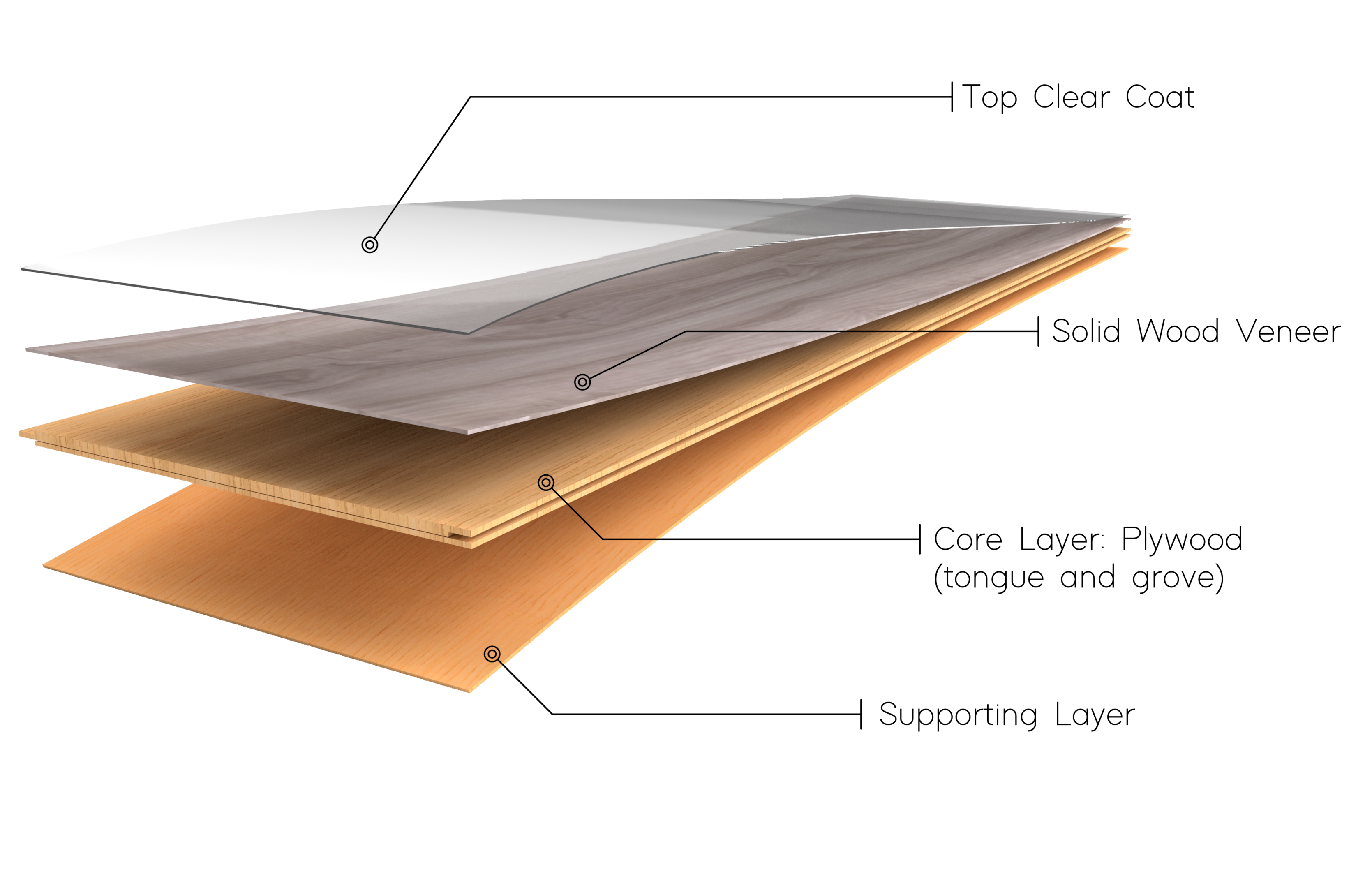
When comparing hardwood vs engineered wood flooring, it’s important to note that visually, solid hardwood and engineered wood flooring can be nearly indistinguishable once installed. Both feature a natural hardwood surface that offers the same aesthetic appeal. However, engineered wood flooring typically has wider floorboards than solid hardwood, which might make your room more spacious.
Regarding design options, engineered wood flooring offers a range of patterns, including horizontal stripes and herringbone or chevron parquet.
Cost Analysis: Budgeting for Wood Flooring
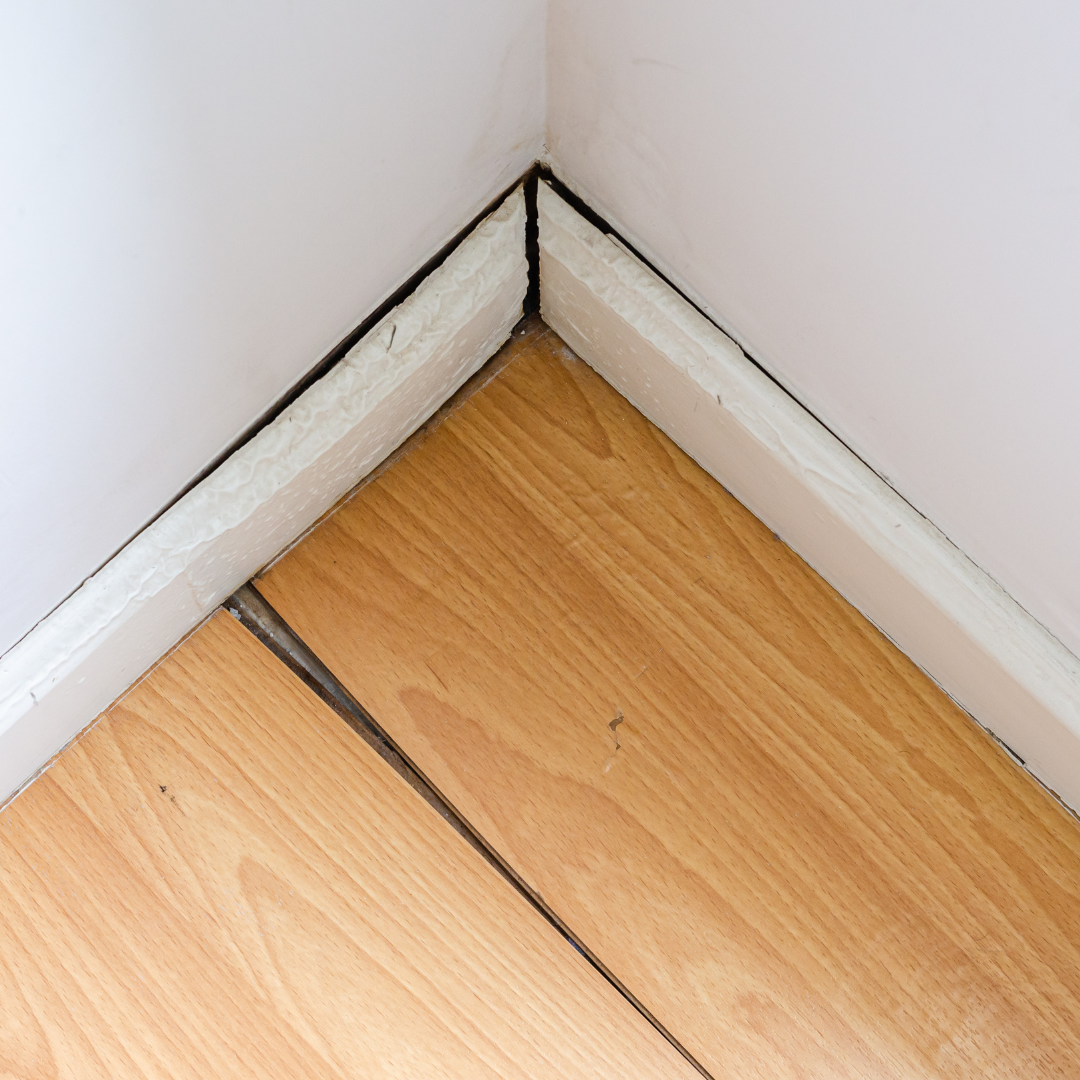
In terms of cost, engineered wood flooring usually comes out ahead, generally cheaper than solid hardwood flooring. However, the final price tag also depends on factors such as:
- The thickness of the veneer
- Plank dimensions
- Type of finish
- Wood species
- Manufacturing location
- Materials used in the core layers
On average, the installation cost of solid wood flooring is moderately high. In contrast, engineered wood flooring tends to be more cost-effective. The cost-effectiveness and eco-friendly nature of engineered wood flooring make it an attractive option for budget-conscious homeowners.
Installation Showdown: Ease vs Expertise
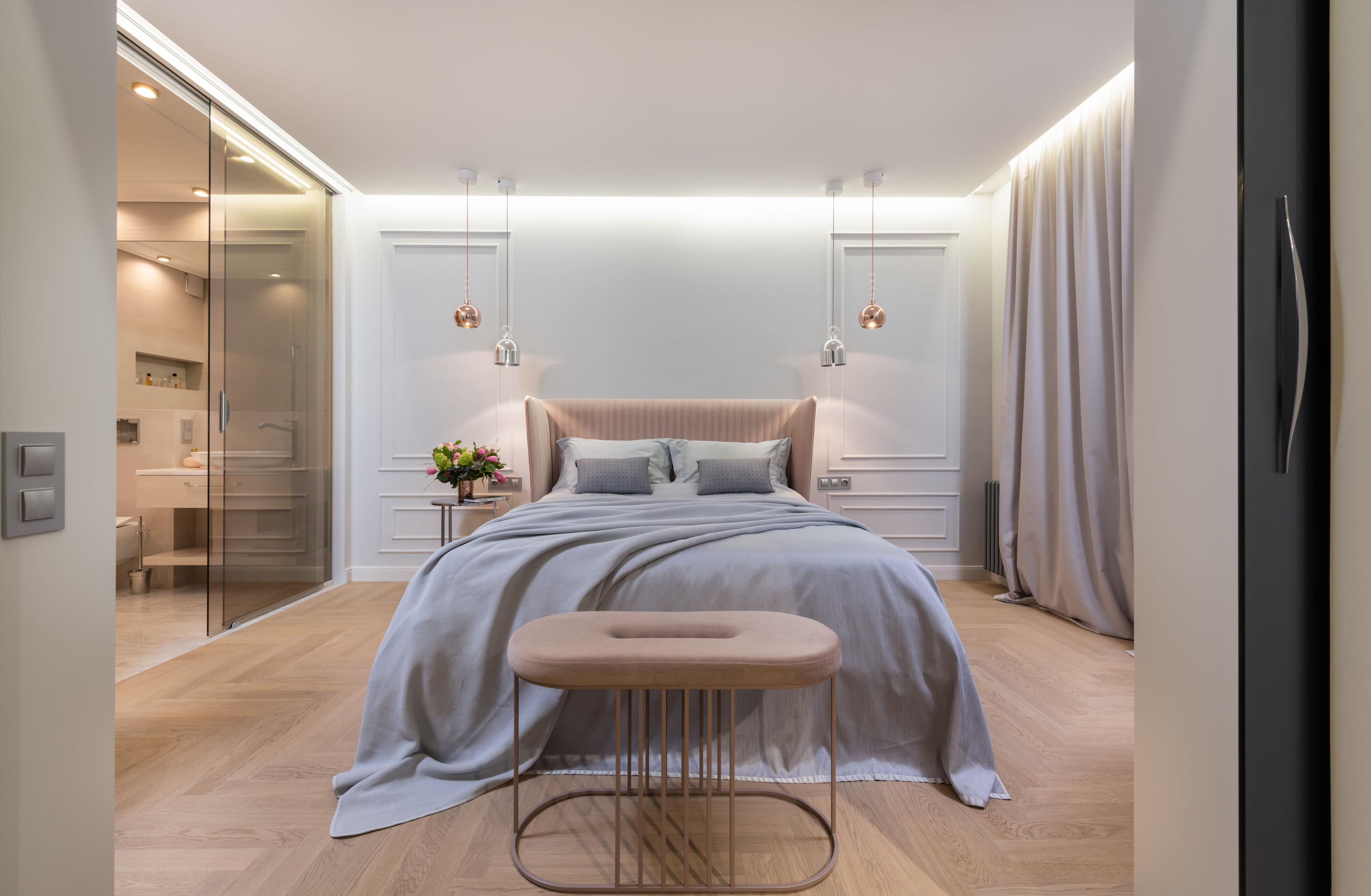
Engineered hardwood flooring, also known as engineered flooring, offers more flexibility in terms of installation. It is available in the following versions:
- Floating
- Click-lock
- Nail-down
- Glue-down
The most popular installation technique is glue down, which involves adhering the planks directly to the subfloor using a recommended flooring adhesive. Glue-down installation of Engineered hardwood floor involves adhering the planks directly to the subfloor using a recommended adhesive.
Solid hardwood installation typically involves nailing or stapling the hardwood planks directly to the wooden subfloor.
Durability and Lifespan: Which Floors Last Longer?

When it comes to durability and lifespan, solid hardwood flooring reigns supreme. Solid hardwood floors can last anywhere from 30 to 100 years with proper maintenance. The durability of solid wood flooring is further enhanced by its capacity to undergo multiple refinishing, thereby substantially prolonging its lifespan.
On the other hand, engineered wood flooring typically has a lifespan of 20 to 30 years. It is known for its durability and longevity. However, using substandard materials can compromise the quality and lifespan of engineered wood flooring. Thus, investing in high-quality engineered wood is worthwhile to ensure its durability.
Moisture and Temperature Resistance: Handling Humidity
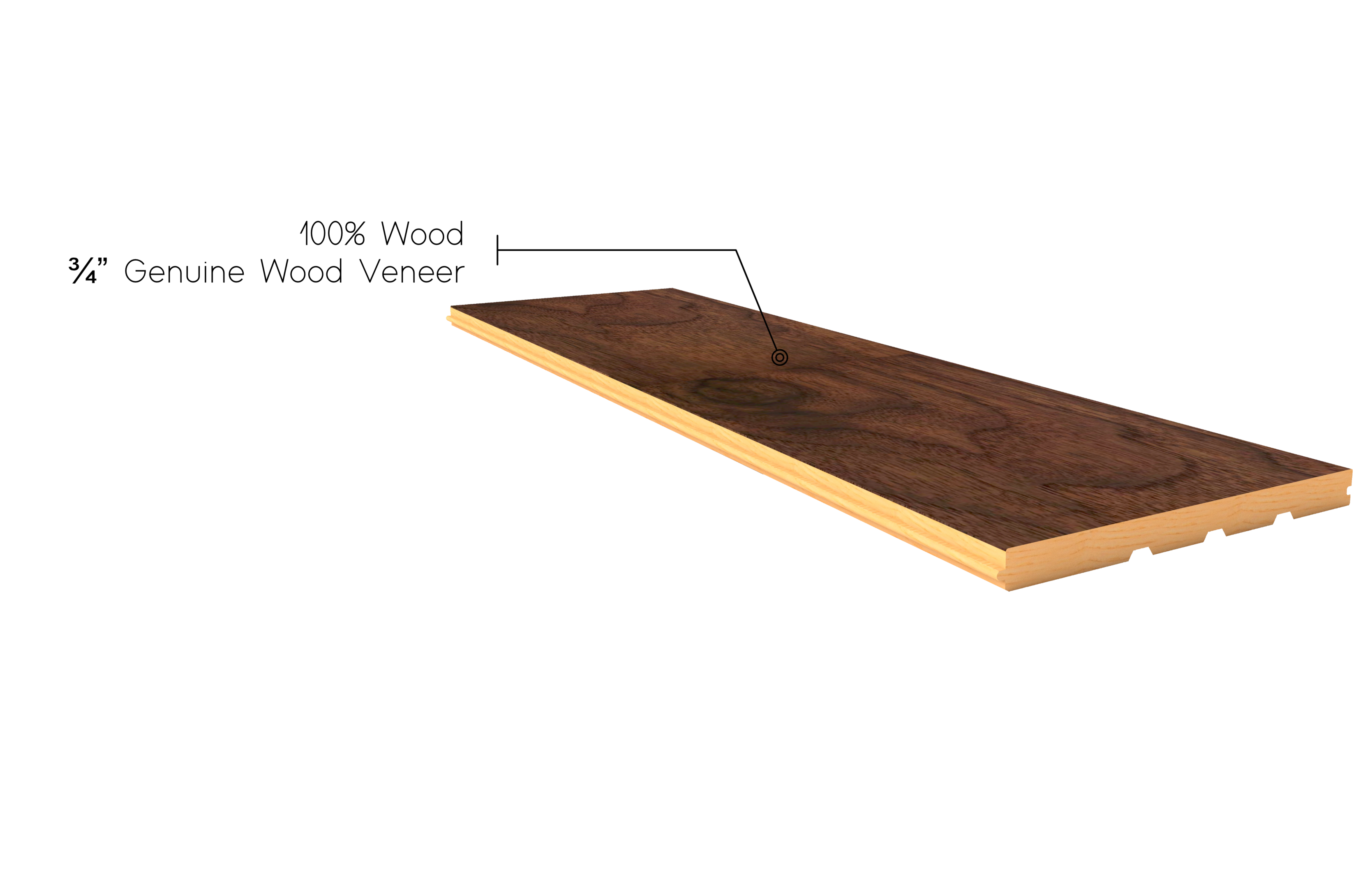
Engineered wood flooring shines in its resistance to moisture and temperature fluctuations. Thanks to its composite core, it is resilient to humid or fluctuating climates, making it a suitable choice for bathrooms, kitchens, or basements. However, it’s important to note that engineered wood is more moisture-resistant, but it’s not entirely immune. Ignoring moisture problems can lead to floor warping.
In contrast, solid wood flooring can be more sensitive to changes in temperature and humidity. High humidity can cause floorboards to expand and warp, while low humidity conditions can lead to shrinkage and cracking. So, engineered wood flooring could be a more prudent choice in regions with variable humidity.
Environmental Considerations: Eco-Friendly Flooring Choices
When it comes to environmental impact, both solid and engineered wood floors have their merits. Engineered wood flooring often uses less hardwood and incorporates byproducts from other wood manufacturing processes, making it a sustainable choice. Using less hardwood per plank reduces the demand for exotic or rare wood species, requires less toxic glue, and generates minimal to no sawdust, contributing to the eco-friendly nature of engineered wood flooring.
However, it should be mentioned that engineered wood flooring, despite using less hardwood and more waste wood byproducts, usually has a shorter lifespan and frequently ends up in landfills. On the other hand, solid hardwood requires more trees to be harvested but can be reclaimed, reused, or recycled and is biodegradable at the end of its lifespan.
Maintenance Matters: Caring for Your Wood Floors
Maintaining the beauty and longevity of your wood floors involves regular cleaning and maintenance. Both solid and engineered wood floors should be regularly cleaned by sweeping or dry mopping.
It’s also important to note that steam cleaning or harsh chemicals should not be used on wood floors, whether solid hardwood or engineered wood, to prevent damage. Instead, opt for recommended cleaning products for solid wood floors like Bona Hardwood Floor Cleaner or Nature’s Miracle, and engineered wood floors, consider Bona or WOCA Natural Soap.
Refinishing Potential: Renewing Your Floor’s Finish
Solid hardwood’s refinishing potential is one of its key benefits. Over time, all hardwood floors are bound to show wear and tear. However, solid hardwood floors can undergo multiple refinishing processes, which help restore their original beauty and even modify styles.
Engineered wood floors, on the other hand, have limited refinishing options. The number of times an engineered hardwood floor can be refinished is usually limited to one – to four times and depends largely on the thickness of the veneer layer.
Sound and Stability: Acoustics and Floor Movement
The acoustics and stability of your floor can significantly influence your home’s comfort level. Solid hardwood floors, when installed correctly, provide superior acoustics and stability, offering reduced noise and improved sound absorption, particularly in comparison to engineered wood.
However, the installation method for solid hardwood floors can significantly influence their acoustic characteristics. Floors that are stapled or nailed down tend to transmit more sound compared to floating installations. Nevertheless, as long as they’re properly attached to the subfloor, hardwood floors typically provide a solid underfoot sensation and exceptional stability.
Addressing Misconceptions: Myths vs Facts in Flooring
A widespread misunderstanding about wood floors is that some types are more scratch-resistant than others. However, the truth is both solid and engineered wood floors are equally susceptible to scratching.
Similarly, many homeowners believe that engineered wood flooring is more pet-friendly than solid hardwood. In reality, solid hardwood is actually more suitable for homes with pets due to its ability to be sanded and repaired more easily than engineered wood, which can be more problematic with deep scratches.
Lastly, some people may believe that engineered wood floors are less eco-friendly. However, the usage of sustainably sourced wood and less solid wood material in an engineered wood floor often leads to a lower environmental footprint and waste.
How Floorika Fine Hard Wood Can Help You Decide Which To Choose?
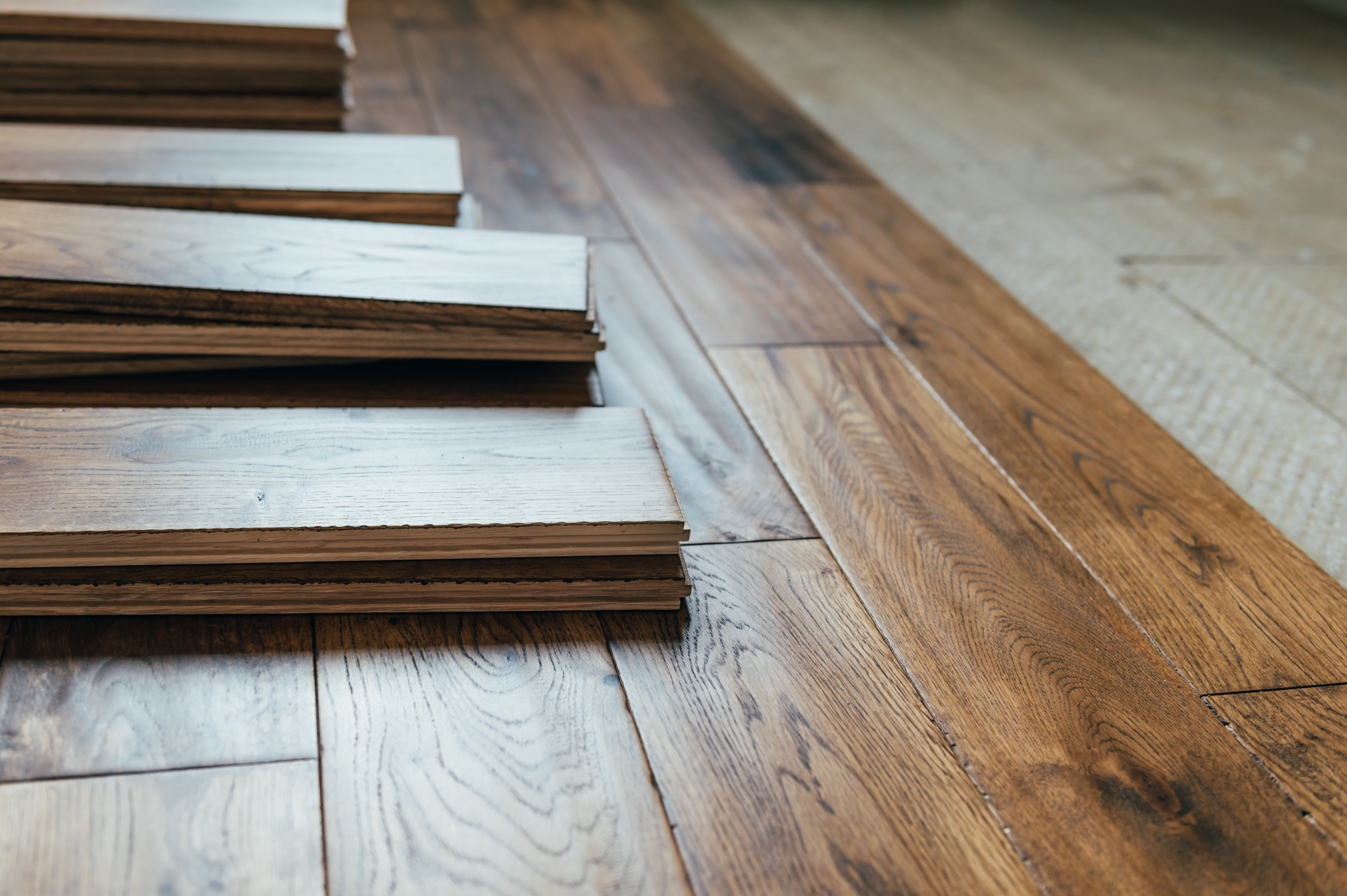
Floorika Fine Hard Wood is dedicated to assisting you in navigating these factors and selecting the optimal wood flooring option for your needs. Offering professional consultation and assistance, Floorika takes into account factors such as:
- cost
- durability
- aesthetics
- environmental impact
to guide your decision.
During a consultation, Floorika works with you to evaluate various wood species according to your budget and color preferences and guides you in choosing between solid or engineered wood flooring based on considerations like room conditions and usage. Ensuring that the suggestions align with your budget and project requirements, Floorika Fine Hard Wood empowers you to make an informed choice.
Summary
In conclusion, solid hardwood and engineered hardwood flooring have unique advantages and shortcomings. The choice between the two will largely depend on your needs, preferences, and budget. From durability to maintenance, aesthetics to cost, and even environmental impact, we’ve delved into each aspect of these two popular flooring alternatives. Hopefully, this comprehensive comparison has provided clarity and will aid you in making an informed choice for your home.
Frequently Asked Questions
Should I get engineered hardwood or solid hardwood?
You should choose engineered hardwood if moisture is a concern, especially for bathrooms, kitchens, and basements. However, for whole-house installations, both options offer plenty of style choices. Choose based on your specific needs and preferences.
Is engineered wood flooring more resistant to moisture than solid hardwood?
Yes, engineered wood flooring is more moisture-resistant than solid hardwood due to its composite core, making it suitable for humid or fluctuating climates.
Can solid hardwood flooring be refinished?
Yes, solid hardwood flooring can be refinished multiple times to restore its beauty and change its style.
Featured Photo by Aditya Joshi on Unsplash


